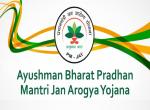The newspaper headlines and electronic media such as NDTV24×7, Times Now, CNN-IBN keeps screaming at us that India is the land of scams, the very fountainhead of corruption. On the one hand are the Indian people – harried, betrayed, looted by those in power. On another we have the predators, the politicians and bureaucrats. As if a third hand had sprouted on our body politic we have the crusaders, the knights in shining armour, the Anna Hazares, Arvind Kejriwals, the father and son Bushan duo, the Sisodias, Damanias and Kiran Bedis, fighting valiantly to expose the corrupt and punish the guilty. Or does one sense a certain tarnish on their armour, a certain uneasy feeling that a desire for publicity, a hunger to be in the limelight, a vaulting ambition to unseat those in power so that they themselves can assume power? Is the campaign against corruption, based less on commitment and more on the benefit that flows to the campaigner really aimed at eradicating the disease rather than on just exposing, selectively, some of the powerful for the vicarious pleasure that scandal-mongering gives? In other words, is India a total cesspit of corruption, or is there another India also in which the average citizen goes about his peaceful occupation and keeps the country ticking?
This essay is not really young India’s contribution because I am already seventy-eight years old and I joined the India Administrative Service more than fifty-five years ago. India, like me, was still young as an independent country, being only ten years old in 1957. We were in a very exciting era in which a leader of the stature of Jawaharlal Nehru had launched India on a path of development which promised to pull a sleepy colony from its slumber to become one of the great industrial powers of the world. Smug though it may sound we young officers also were galvanised by the thought that in our own small way we, too, were a part of the process of modernisation. Great things did happen, dams were built, food self sufficiency was attained, the capital goods industries went into production, education and healthcare took large leaps, electric power brought light to rural India. We, who had been the brightest jewel in the British crown, were suddenly moving by leaps and bounds to catch up with the developed world. The sheer sense of pride we had as Bhakra Dam went on stream, Bhilai Steel Plant began to produce steel or the Railways began producing their own locomotives. No country that is genetically corrupt can achieve all this and our scientists, engineers, technologists, doctors, researchers, even our politicians and civil servants proved that we are better than the best. No country in the world could produce a team equal to one headed by S.N. Mehta of the ICS and Tata Rao, a great electrical engineer, who together built the Madhya Pradesh Electricity Board into a powerful engine of economic and social change in the largely tribal state of Madhya Pradesh.
Even if the paper is not written by a young man it is still the outpourings of a person who is xenophobically Indian. I believe in this country, I have faith in its future and I take great pride in the commonsense of its people. Therefore, unlike the Kejriwals of today I would like to draw up some sort of a balance sheet which would help us look at ourselves in perspective, recognise the legitimacy of the demand to eradicate corruption because the fact is that not only at top levels but even, or especially, at the level of normal routine the citizen has become the victim of bureaucratic inefficiency, even deliberate harassment, political corruption and even downright cheating by unscrupulous businessmen. In the delivery of services by both government and the private sector there is a feeling based on reality that the citizen will face a shortfall. Even in performing its minimum function of maintaining law and order and controlling crime government seems to be failing, with political interference in police functioning being the main cause. It is almost as if the will to govern no longer exists, though the desire to use power for personal gain is very much in evidence.
The negative side of the report card can be extended to cover a volume, but the negative is also constructed out of elements which highlight what is wrong without looking at the whole picture. Therefore, unless one is looking at a situation such as faced by Germany at the end of World War II, when the nation stood destroyed by the colossal mistakes of an unbridled megalomaniac, if the negative is viewed in perspective it often becomes manageable and capable of remedy. The question, therefore, is whether the near failure of governance in India, the widespread political and bureaucratic corruption, the systemic shortcomings, are still manageable and capable of remedy or do we now need a total revolution? Is the India Against Corruption campaign of washing dirty linen in public such a revolution or is it only another form of J.P. Narain’s failed ‘sampurna kranti’? Is there cause for despair or is there still real hope?
A perspective requires a study of what is positive in the system. One must, therefore, begin with seeing the institutions which the British left us and which the Constitution enshrined. The first is parliamentary democracy itself. Despite the brief interlude of the Emergency institutionalised democracy does work in India. It accommodates the political philosophy of Hindutva without sacrificing the basic secular character of our democracy. It encourages middle-of-the road politicians and parties to set a benchmark to which both extreme right and extreme left have to adhere. It allows the Marxists to rule two major States and wield great influence nationally. It forces fissiparous regional parties like DMK and the Akali Dal to subordinate their regional interests to national interests and it makes the Government of Gujarat acquiesce to prosecution of communal elements in the State who allegedly enjoy state patronage, many of whom have been convicted and sentenced by our independent courts. In fact the fiercely independent judiciary itself is a legacy of the British, with the courts standing as a stout wall which protects our democracy. This is an unparalleled achievement and one could state with little fear of contradiction that no other country has such proactive courts as our Supreme Court and High Courts. Politicians may accuse the judiciary of sometimes encroaching on the territory of the executive, but no one dares to defy or disobey a court order.
There are three other institutions which need mention. One is our totally apolitical Armed Forces. Our Armed Forces are a democratic organ of a democratic State and anyone who underplays this fact is a fool. This is definitely one of the major positives of our report card. Then we have the Civil Services, including the Police. They have been under immense stress as values erode and politics becomes corrupt, fissiparous, or demanding of our Services to become partners in wrongdoing. No doubt there is some erosion of values and probity, but there are many fine Civil Service and Police officers who have been true to their salt, been steadfast in doing their duty and have stood their ground against all odds. To this we must add our great civil Constitutional institutions such as the Comptroller and Auditor General, the Public Service Commission, Union and State and Commissions such as the National Human Right Commission and the Information Commission. “They stood, and earth’s foundations stay”, to quote Housman.
Empowerment in its broadest sense is a definite positive in India. The British studiously avoided empowering us. They did delegate certain functions to Indians and made marginal institutional changes, but in terms of giving Indians real power in the way that the Preamble of our Constitution does or Part III of the Constitution through the Fundamental Rights confers on all citizens was missing from the British mindset. Empowerment after independence has been devolved politically right down to panchayat level and now, through the Seventy-third and Seventy-fourth Amendments of the Constitution, urban and rural local government forms the third tier of government in India. At local government level, through reservations which are legally mandated, women, tribals and scheduled castes and other backward classes which hitherto did not enjoy a share of power have now been constitutionally made partners in government. The most significant change has been reservation for women in local government, which has forced a conservative and, in the case of States such as Haryana a fundamentalist orthodox society, to share power with women. This has not ended discrimination against women but as more and more of them begin to enjoy political power one can see a perceptible shift in gender equations in large parts of the country. Khap panchayats of Haryana still exist but the voices of women can no longer be stilled and the movement for gender sensitisation and equality is bound to gather pace.
On the social front one finds a great deal of ferment in what has hitherto been a caste bound socially static society. One change is that those who had been oppressed for millennia on account of birth are standing up, demanding and .fighting for their rights. Social structures cannot change overnight, but as more of the underprivileged raise a cry for an equal share of power, wealth and development, the social momentum for equality is bound to accelerate. Many people, especially of my generation, find it anathema that those who happen to be born in a lower caste are now coming and sitting not only beside us but sometimes above us. There have been violent clashes between different social groups on this account and stories of atrocities against lower caste people are still heard frequently. Here, too, there is a change. It is not the Brahmins and the Thakurs who are the main exploiters of the Dalits. The main clash is now between OBCs and the Dalits. If the highborn can learn to live with those whom they consider shudras, the day is not far when OBCs will also have the accept Dalits as equals. Where we are failing is that government, which should play a strong proactive role to promote a casteless society and to come down with a heavy hand on those who use their collective caste status to oppress others, often plays a wait and watch role. If government becomes proactive we can very quickly become a society based on merit rather than caste and class. One would have thought that the Socialists would be in the vanguard of a campaign to promote castelessness, but unfortunately the two main Socialist groups, the U.P. group of Mulayam Singh Yadav and the Bihar Group of Lalu Prasad Yadav, have preferred to play the intermediate caste card for political gain and these two groups have in fact encouraged caste based politics which is highly divisive. In a country undergoing social ferment which can only create a new, positive dynamics, divisive caste politics is trying to reverse what is a desirable forward progression in India. Nevertheless I still look upon social ferment as a healthy sign and would put it on the positive side of the report card.
How well have we managed our economy? Have we eliminated poverty, tackled malnutrition, provided jobs, increased productivity, balanced the budget, controlled prices and generally created an environment in which there is healthy growth with equity? I would like to answer this question somehow obliquely. In the beginning of 1962 I became District Collector of Betul, a beautiful, jungle clad, hilly district in the Satpuras, with a large tribal population. When compared with districts in the more prosperous areas of India or, for that matter, in the Chambal or Malwa regions of Madhya Pradesh, Betul was backward; there was visible poverty and very little industrial activity. Soon after I took over, a Swedish Bishop, who had served as a missionary in the district more than thirty years ago, came to call on me. He expressed surprise at the enormous progress made by the district, which took me aback. I asked him why he felt that there was progress. He told me that whereas in the past many people were bare bodied he did not find a single person without a shirt on his back or footwear on his feet, many tribals were on bicycle, there was electricity even in rural areas and that in a district where wheat was almost unknown he found it to be the major rabi crop now. I had taken a spot view of the district, whereas the Bishop had taken a longitudinal view. I swore that day that in future when I looked at any issue I would also like to create a perspective in which I could compare what was and what is. If we view India through this prism it is amazing how much progress we have made. When the British left only about five thousand towns and villages were electrified. Today there is universal electrification and though power supply in rural areas is erratic, intermittent and of poor quality, at least the basic service is in place. If we emulate the example of Gujarat which has separated the agricultural feeder from the main feeder, ensured twenty-four hours supply on the main feeder at full tariff and prescribed hours of top quality supply on the agriculture feeder we, too, can improve the quality of power and the quantum of power throughout the country. Here there is a management failure but not an economic failure. If we set the power system right there would be a massive upsurge of economic activity and this is something which is capable of both implementation and management.
India had a rudimentary industrial structure when the British left and today we are one of the most powerful industrial economies in the world. We look at the aberrations of the system, but why do we not recognise that Ratan Tata, Rahul Bajaj, Keshub and Anand Mahindra, Dhirubhai, Mukesh and Anil Ambani, the great Chettiar industrialists of the South have created absolutely new industrial and economic models which have made India prosperous? We bother about Mukesh Ambani spending rupees six hundred and fifty crores on his house in Bombay, but we do not even mention the fact that the world’s biggest refinery of petroleum products is the Reliance Group’s establishment at Jamnagar, which has created thousands of direct and indirect jobs. One does not excuse the Ambanis for any shady practices they may have adopted to create this vast empire, but the fact is that Dhirubhai and his sons have played a major transformative role in developing Indian industry.
NREGS is the flagship vessel of government to create rural employment. The idea is sound because if we create rural jobs which are productive we can ameliorate rural-urban migration and also improve living standards in rural areas. However, in practical terms the scheme is somewhat ill-conceived because its main focus is employment and not asset creation. The minute we change this scheme to create permanent rural assets which benefit the rural economy, the scheme will suddenly become a major source of increasing productivity on a long term basis in the agriculture sector. One has only to visit those areas of Jhabua District where a successful watershed management programme has dramatically increased fodder and fuel supply, raised the water table, brought about a higher agricultural yield and very substantially stopped the seasonal migration of the villagers in search of wage employment. The thought was correct, the design of the scheme was defective and, therefore, unsatisfactory implementation coupled with corruption was an inevitable consequence. What we need here is not Kejriwal; what we need is a system which automatically forces planners to think and then from these thoughts emerge practical proposals which can be implemented without difficulty.
I would say that on the whole the economy has not done badly. The major failure of government in this behalf is a total inability to grasp what causes inflation and to take remedial measures in reasonable time. That is also because the economic managers and advisors of government are unfortunately not grounded in Indian realities and, therefore, outdated, totally irrelevant and out of context, World Bank influenced ideas flow from them and virtually dictate policy. Prices can be controlled through better networks of roads which enable produce to be moved from rural areas, a wholesale market which buys directly from the producer and not through middlemen, a host of storage facilities which enable grain, for example, to flow into the market on a year round basis, in which there is no sharp drop in prices when the harvest season sets in and a sharp increase as the season passes and grain becomes in short supply, and a well developed market intelligence system which enables commodities to be quickly moved from the producer to the areas of high demand. It does not take a genius to look at what is obvious but it takes hard work, based on proper planning and priorities, to achieve desirable results. I consider it a big negative in this country that we still have not been able to develop a system which could encourage price stabilisation, while paying a fair share to the producer.
Our social infrastructure has definitely improved. There are more schools, more colleges, more institutes of technology and management and medicine than before and whereas peaks of excellence may have flattened, the overall standard has risen. We may not win Nobel Prizes, but we are a better educated and more technically qualified people than before. I hold the view that if the Education Ministry could put its act together we can revolutionise our educational system and standards. This is also true of healthcare. But unfortunately here the primary healthcare has not kept pace with a high level medical and surgical care. What we need to do is to raise the median to a higher level so that the quality of primary and community level health care dramatically improves. This, again, is an achievable objective.
India may not be shining like burnished gold but it certainly is not the Dark Continent. I would say that we are progressive but not optimally efficient, we are not genetically corrupt but there is systemic corruption in India which we are not serious about eradicating. We have a dynamic economy, but as a people we seem to prefer the brake pedal to the accelerator. We lack strong, purposeful democratic government despite a firmly entrenched democratic polity. None of these, however, need cause us despair, though there are twinges of distress. We can overcome all these shortcomings with greater citizen participation, greater accountability which rewards the good and punishes the bad and with reformed political parties which emphasise values and ideology and prepare themselves both for exercise of power and to sit in opposition. Platitudes? Never -- for all this is in the realm of the possible.
Published Date: 30th October 2012, Photo Courtesy: blogs.wsj.com









Post new comment